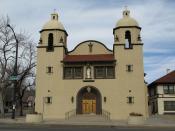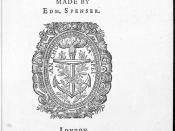In his book Humanism, Tony Davies examines the essence of the Renaissance, and concludes that the period was ultimately a way to "speak out" against the trials of society and the realities of the political court. The literary era had a "central preoccupation with eloquence", which Davies defines as 'speaking out' or 'public speaking.' Thus it follows that with the arrival of the Renaissance, writers began analysing not only themselves and their emotions, but also the wider socio-political atmosphere. However, the degree to which this scrutiny was covert, and provided the underlying impetus for the sudden flourish of manuscripts and literary interest, is debatable.
The Renaissance is characterised as an era of exploration and discovery. The word "renaissance" translates as "re-birth," suggesting knowledge and discovery of the self as well as of the world. The expeditions to distant lands contributed to the breeding of the humanist movement as a simultaneously philosophical and politically aware group.
Gasping in awe at the magnitude of man's achievements, the humanists developed strong appreciation for man as a human being, "the speaking animal." They sought to unearth the mind's full potential without having it burdened by the "ecclesiastical despotism" that was rife in the early sixteenth century. There was widespread dissatisfaction with the papal organisation which, according to Erasmus, was dominated by ignorant monks. The subsequent Reformation changed not only the form and understanding of religion, but also of the political climate. The beginning of the reformation in England was timed to coincide with political convenience. Breaking away from the Catholic Church was lucrative, as it enabled Henry VIII to divorce Katherine, and to end his forced allegiance to Rome. However, the disestablishment of the Church also created a degree of civil unrest as factions sprang up among the Christian populace, with each viewing the...


